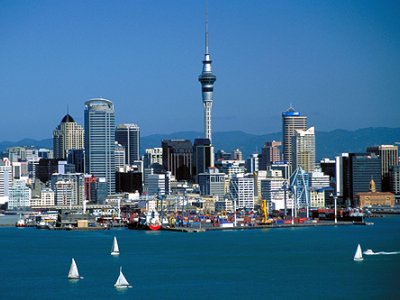
KIWI APOCALYPSE
Speculation about the future can be an excuse not to think about the present, which is the only sphere in which God meets with us
Quietly and without much fuss, several billionaires are buying up land in New Zealand. It’s not exceptional on the face of it: what’s not to like about the place? The people, the landscape, the wine and the rugby all commend it. But something deeper is at work. As Reid Hoffman, co-founder of LinkedIn has said: ‘saying you’re “buying a house in New Zealand” is kind of a wink, wink, say no more’. And this wink is to the threat of an apocalypse.
A whole panoply of disasters is being prepared for: nuclear war, earthquake, catastrophic climate change, global pandemic, civil war. For the Silicon Valley entrepreneurs who are buying Kiwi real estate, it is the last of these threats which consumes much of their thinking on the matter. Better than most, these business leaders have anticipated the way technology is greedily eating up jobs. Most people are sanguine about the ‘disruptive’ economy until the changes arrive at their workplace, by which time it is too late to halt them. As more people are put out of work, the wealth gap between the super rich and other socio-economic classes will only grow, stoking the risk of civil unrest in many countries.
Others who make less grandiose plans tend to stockpile guns, ammunition and tinned foods and hide out in redoubts like Montana. Motorcycles are valued, for they can get you through gridlocked traffic, though that feels to others more like the enactment of some Terminator fantasy.
The apocalyptic imagination is robust and especially so during eras of rapid, uncontrollable change, which is especially true of ours. Yet the notion of an apocalypse is overblown on some, if not all accounts. Some of the risks posed amount to serious social disruption, unrest and potential violence, but the world will still carry on. Other risks are less quantifiable and disturbing. Nuclear war or, perhaps more likely, nuclear accident is nightmarish and the only conceivable way to find release from it is to get away as far as possible from the radioactive fallout, which makes New Zealand one of the safer options. But in a densely interconnected world there is no real escape from the consequences of a catastrophic disaster.
End of the world discourse is usually ridiculed by those who are steeped in rationalism and a particular kind of scientific understanding of the world which eschews the possibility of the non-material because it can’t be seen or measured. Christians should be wary of idle speculation about the future, not least because it has sometimes distorted the life and witness of the Church, allowing it to become prey to outlandish theories and the malign charisma of deceived and deceiving leaders. But we cannot avoid talk about the end times because this is part of the fabric of the New Testament. Scripture discourages speculation about the future because this affords us an excuse not to think about the present, which is the only sphere in which God meets with us. How we live as followers of Christ now, in the light of our future hope of renewal, is the biblical priority.
St Paul’s account of creation groaning with the pains of labour is one of the most poignant and moving of metaphors about the promised hope of a world to come (Romans 8:22) and we should not be embarrassed to own this in a culture that has only lurid visions of what an apocalypse might look like. No amount of money inures us from the deeper risks of life, of which death itself is the most obvious. Faith in the goodness of God and his purposes for this world are what we are called to. No money is needed to prepare us for the work God will do.
As Isaiah 55 proclaims:
Everyone who thirsts, come to the waters; and you that have no money, come buy and eat! Come, buy wine and milk without money and without price….Incline your ear, and come to me; listen, so that you may live.
For all its merits, New Zealand will have nothing on what is to come.
POPULAR ARTICLES

Obama's Covert Wars
The use of drones is going to change warfare out of all recognition in the next decades.

Through A Glass Starkly
Images of traumatic incidents caught on mobile phone can be put to remarkable effect.

What Are British Values?
Is there a British identity and if so, what has shaped the values and institutions that form it?


